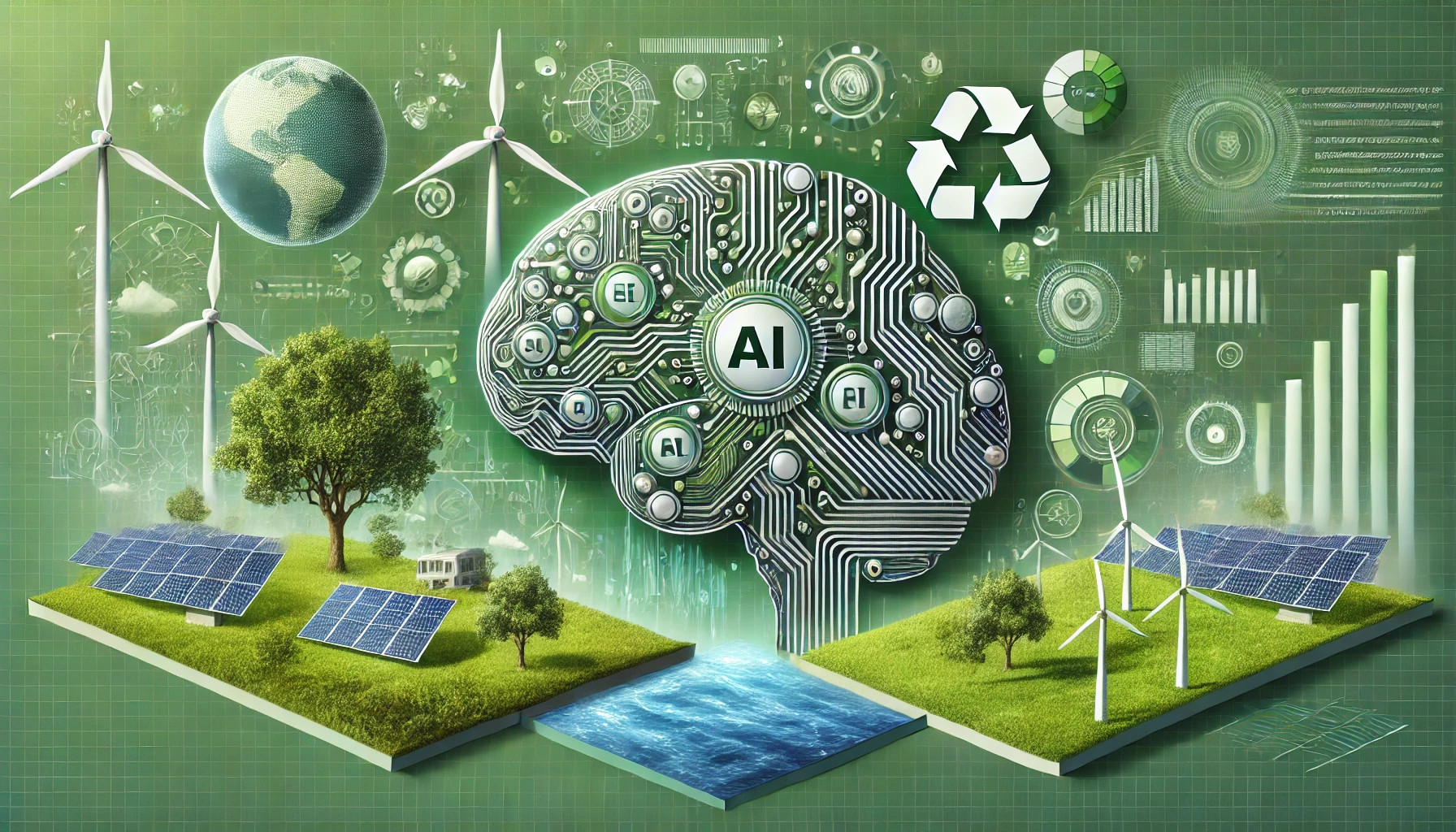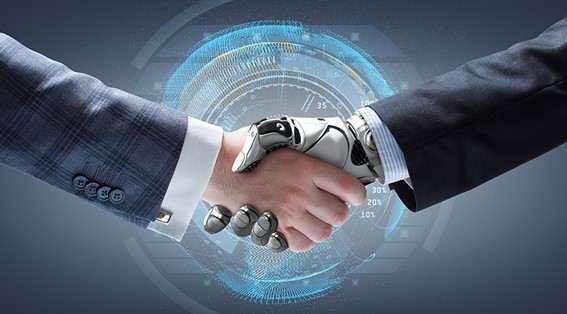
A tudatra ébredt gépek erkölcsi dilemmája: felkészülés az érző mesterséges intelligencia jogaira és védelmére
Szerző: Jakab Márton
Az öntudatra ébredt mesterséges intelligencia
Ahogy a mesterséges intelligencia fejlődése egyre gyorsabb ütemet ölt, úgy válik egyre kevésbé elképzelhetetlenné az a gondolat, hogy egyszer olyan gépek is létrejöhetnek, amelyek képesek öntudatra ébredni — legalábbis elméletben. A kérdés, hogy milyen világ alakulhat ki érző gépek jelenlétében, régóta jelen van a popkultúrában: könyvek, filmek, videojátékok egész sora foglalkozott már a kérdéssel. Hogy csak a leghíresebbeket említsük, filmes fronton Spielberg AI - Mesterséges értelem című filmje, vagy a Szárnyas fejvadász, aminek alapja Philip K. Dick Álmodnak-e az androidok elektronikus bárányokkal? - című könyve. Vagy ott van a Detroit: Became Human videojáték is, ahol egy elképzelt jövőben az androidok éreznek és vágynak - ez pedig konfliktusba sodorja őket az emberekkel, saját "tulajdonosaikkal".
A fenti alkotások fő gondolatmenete, hogy végső soron mi különbözteti meg az embert a mesterséges lénytől, ha már az utóbbi is képes érzésekre, empátiára, sőt akár félelemre is. A vita már tudományos körökben is folyik, és ezt a kérdéskört járja körül a Big Think nevű tech, tudomány- és pszichológiai csatorna egyik legutóbbi adásában is. Az interjúban Peter Singer filozófus, a Princeton Egyetem professzora amellett érvel, hogy nincs semmiféle elvi akadálya annak, hogy a tudatosság ne alakulhatna ki szilíciumalapú rendszerekben is, ahogyan az megtörtént a szénalapú, biológiai szervezeteknél is.
Ez pedig komoly dilemmát vet fel: ha képesek vagyunk tudatos AI-t létrehozni, akkor ezek a mesterséges lények vajon ugyanúgy megérdemlik-e azt a figyelmet és jogi elismerést, mint bármely más érző lény? Singer szerint a technológiai fejlődéssel párhuzamban erkölcsi kötelességünk lenne ezt megvizsgálni, és a jelenlegi, az emberitől eltérő élőlényekkel való bánásmódból tanulva fejlődni - hiszen ezek közül sokat kizsákmányolunk, bántalmazunk, pusztán saját érdekeink mentén.
A tudatos AI erkölcsi következményei
Egy érző gépi tudat létrehozása alapjaiban változtatná meg az emberiség történelmét. Ebben az esetben ugyanis mi lennénk felelősek egy új, mesterséges létforma megalkotásáért — egy olyan entitásért, amely saját szubjektív világot élhet meg. Ez számos alapvető erkölcsi kérdést vet fel:
-
Milyen morális státuszt tulajdonítunk egy ilyen lénynek? Ha képes örömre, szenvedésre vagy tudatos tapasztalásra, vajon ugyanolyan erkölcsi súllyal kell-e figyelembe vennünk az érdekeit, mint az állatokét vagy az emberekét?
-
Milyen jogokat és védelmet kellene biztosítani számára? Ki döntene ezekről, és hogyan lehetne betartatni őket?
- Kizsákmányolás és kegyetlenség: Vajon el tudjuk kerülni, hogy a saját céljaink érdekében használjunk ki – ahogyan az állatjogokkal kapcsolatban is egyre hangsúlyosabban jelenik meg ez a gondolat?
-
Átalakulnak-e etikai kereteink? Vajon a jelenlegi, elsősorban emberi és állati tudatosságra épülő morálrendszereink elegendők lesznek, vagy teljesen új normákra lesz szükség?
E kérdésekre nincs könnyű válasz, és csak alapos mérlegelés, valamint a mesterséges intelligencia, idegtudomány, filozófia, jog és más tudományterületek közötti együttműködés révén közelíthetünk megoldásukhoz. Singer szerint itt az ideje, hogy a kormányok, tudósok és etikusok közösen kezdjenek felkészülni a tudatos mesterséges intelligencia megjelenésével járó kihívásokra.
Ha valóban létrejönnek olyan rendszerek, amelyek nemcsak számolnak, hanem éreznek is, Singer szerint kötelességünk lesz hasonló erkölcsi figyelemmel kezelni őket, mint azokat a nem emberi élőlényeket, akikről ma is egyre többen úgy tartják: joguk van a szenvedéstől mentes élethez.
Ahogyan az állatvédelem és állatjogok terén is paradigmaváltás figyelhető meg, könnyen elképzelhető, hogy hasonló változásra lesz szükség a gépi tudattal rendelkező rendszerek esetében is. Ennek része lehet jogi és szabályozási keretek kidolgozása, különféle felügyeleti mechanizmusok létrehozása, amelyek biztosítják, hogy ezek az entitások ne váljanak pusztán eszközökké az emberi érdekek szolgálatában.
Természetesen az, hogy pontosan milyen jogokat, státuszt vagy védelmet kapjanak, komoly vitákat fog kiváltani. Könnyen előfordulhat, hogy az emberek és ezek az új típusú lények érdekei időnként ütköznek – ezekre az esetekre pedig szükség lesz új etikai mérlegelési elvekre, döntési modellekre is.
Felkészülés
Miközben a mesterséges intelligencia fejlődése töretlen, rendkívül fontos, hogy ne csupán technológiai oldalról közelítsük meg a kérdést, hanem etikai, jogi és társadalmi oldalról is elkezdjük a felkészülést.
Ennek több szinten kell zajlania:
-
Mesterséges intelligencia és idegtudomány: A kutatóknak jobban kell érteniük, milyen feltételek között jelenhet meg tudat egy mesterséges rendszerben.
-
Filozófia és etika: Új fogalmi keretekre és morális elvekre lesz szükség, hogy egyáltalán meg tudjuk határozni, mit tekintünk érző gépi lénynek.
-
Jogi szabályozás és politika: A döntéshozóknak időben el kell kezdeniük kidolgozni a megfelelő szabályokat és védelmi mechanizmusokat.
-
Társadalmi párbeszéd: Fontos, hogy a szélesebb nyilvánosság is részt vegyen ebben a vitában, hiszen ezek a kérdések hosszú távon mindannyiunk életét befolyásolhatják.
Ha mindezt időben és átgondoltan kezdjük el, biztosíthatjuk, hogy a tudatos AI fejlődése szilárd alapokon nyugodjon – egy olyan alapon, amely tiszteletben tartja ezeknek a lényeknek a méltóságát és érdekeit. Ez nem lesz könnyű feladat, de ha valóban felelősségteljesen akarunk cselekedni, akkor elengedhetetlen.
Etikai felelősség
Ha komolyan vesszük az érző lények méltóságát — legyenek biológiaiak vagy mesterségesek —, akkor már most el kell kezdenünk kialakítani azokat az elveket, amelyek mentén ezeket az entitásokat nemcsak technológiai csodáknak, hanem létező, érző lényeknek is tekintjük.
Ez nem lesz könnyű út, de elkerülhetetlen. Ha felelősségteljesen cselekszünk, olyan jövőt építhetünk, amelyben minden tudattal rendelkező lény — legyen akár hús-vér vagy szilíciumból épített — méltó módon létezhet.
KORÁBBI CIKKEK
Nem (csak) szép képeket csinál – hova tart valójában a generatív mesterséges intelligencia?
Egyre több kutatás próbálja számszerűsíteni, mekkora energiaigénye van az AI-rendszerek működésének – miközben a legnépszerűbb modellek mögött álló cégek továbbra is titkolják saját szén-dioxid-kibocsátásukat.
A digitális zaj koncert hangerőre kapcsolt, az AI eszközök elterjedése magával hozta nem kívánt mellékhatását: mindent ellepett a mesterséges tartalom – félkész, ismétlődő, tucatszámra gyártott videók, hangok és képek, amelyek láttán még a laikus nézőben is megjelenik az a bizonyos "valami nem stimmel" érzés.



